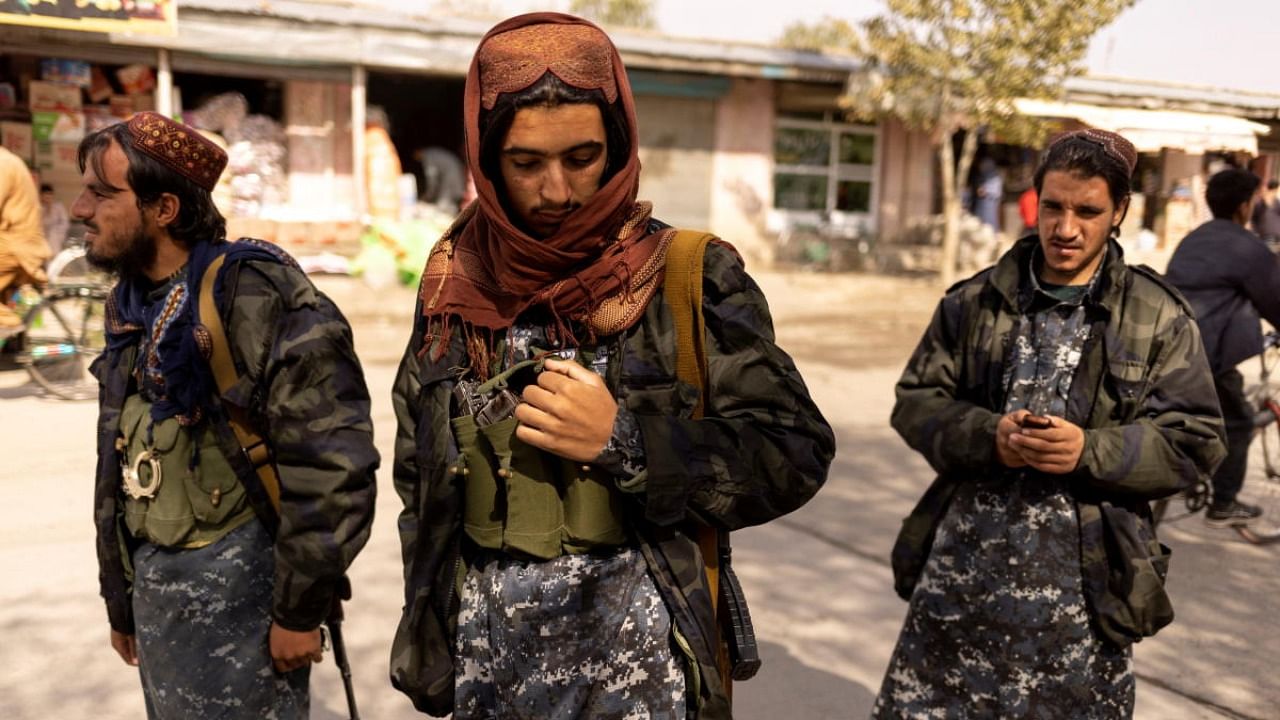
"Afghans had broken the shackles of slavery," remarked Pakistan's Prime Minister M Imran Khan triumphantly on August 16, 2021, as the Taliban swept to power in Afghanistan. In less than six months, the cruel realities of the Taliban rule are staring Pakistan in the face. The Taliban's victory has encouraged Tehrik-i-Taliban Pakistan (TTP) and other terror groups to intensify their violent activities, increasing the threats of extremism and sectarianism. Despite its multiple promises, the Afghan Taliban has refused to restrain the TTP from continuing its attacks against the Pakistani security forces.
The TTP's attacks have now reached Pakistan's heart. It assaulted a police party on January 17 in Islamabad, killing one cop and injuring two. Ironically, on December 17, as Pakistan convened an Organisation of Islamic Cooperation (OIC) foreign ministers meeting to seek humanitarian aid for Afghanistan, armed clashes took place between the Afghan Taliban forces and Pakistani border guards in the eastern Afghan province of Nangarhar on fencing the border. Previous Afghan governments had also objected to the border fencing, yet there had not been the use of force in recent times. Also, these clashes occurred, despite the Taliban forces being under the control of Pakistan's Inter-Services Intelligence (ISI) favourite, Sirajuddin Haqqani.
The Imran Khan government had termed the TTP attacks earlier as the handiwork of India and the Afghan Intelligence under the nationalist government. With both removed from Kabul, why are these attacks continuing now? Another calculation made by the Pakistan government was that a friendly government in Kabul would help it check the reverberating Pashtun nationalism. Events have belied that expectation.
Some Pakistani critics have asked if there has been a significant policy failure by the Pakistani state in gauging the affinity between the Afghan Taliban and TTP? Pakistan's Chief of Army Staff, General Qamar Bajwa, recently remarked that the Afghan Taliban and TTP were the "two sides of the same coin", implying that neither can be trusted.
The Taliban victory has come at a considerable price for Pakistan. According to Imran Khan, Pakistan suffered over 80,000 casualties, displacement of 3.5 million of its nationals and lost over $150 billion in economy claims. Its support to the Taliban has led to the souring of relations with its major partners, including the US, European countries, China and others. Angry at Pakistan's duplicitous role, US President Joe Biden has not spoken to the Pakistan prime minister after taking over. The US has cut down most of its security and economic assistance to Pakistan.
Pakistan's relations with China have come under strain as Islamabad is unable to provide foolproof security to the Chinese project personnel against the TTP attacks. Due to deceleration in economic growth, China has curtailed funding for its Belt and Road Initiative (BRI) by about 55 per cent from $105 billion in 2019 to about $47 billion in 2021, which has also impacted financing for Pakistani projects. With little investment coming from other sources, Pakistan is on its knees to manage its economy.
Pakistan's isolation and economic vulnerabilities prompted Imran Khan to announce a New Security Policy (NSP) with a geo-economic vision at its centre with considerable fanfare. But critics say the NSP offers only platitudes without any strategy or roadmap for implementation. It sounds like the Pakistan prime minister's clarion call of "Naya Pakistan". The publicly released version of the NSP has nothing new on identifying the problems or their execution.
The Taliban 2.0 rule remains as regressive as that of the Taliban 1.0 except for some publicity garnering rhetoric. The Taliban spokesman Zabihullah Mujahid recently stated, "If the world does not want to be threatened from Afghanistan, they must recognise us." Some critics say that the Taliban does not embrace the idea of "governing for the people". To them, the role of the state is to bring the people into the fold of "true Islam" rather than to protect or serve them.
While the UN is planning an $8 billion aid programme for Afghanistan and the US has issued some exemptions to its officials and the UN to deal with the Taliban, monitoring aid reaching the Afghan people remains a sticky issue. A European delegation told the Taliban Acting Foreign Minister, Amir Muttaqi, at the Oslo talks (January 23-25, 2022) that humanitarian aid would be tied to an improvement in the human rights situation, including access of girls to schools.
Unless the Taliban moves away from its primitive orthodox beliefs and provides reasonable governance, the country is unlikely to see improvement in food, health and essential services or attain a modicum of stability and security. Without the latter, investments or infrastructure building for improved connectivity with the Central Asian countries and others will remain a pipe dream.
Pakistan's National Security Adviser Moeed Yusuf remarked on January 26 that the "Afghan soil was still being used against Pakistan and organised terrorist networks were operating there"; he was "not completely optimistic" about the Taliban government anymore. Thus, Pakistan's frustrations with the Taliban have started setting in and if the Taliban continues to behave like a terror group instead of a responsible government, the Pakistanis would increasingly question if the cost of rearing this child was worth the outcome and was it not a monumental failure of the ISI?
(Yogesh Gupta is a former ambassador)